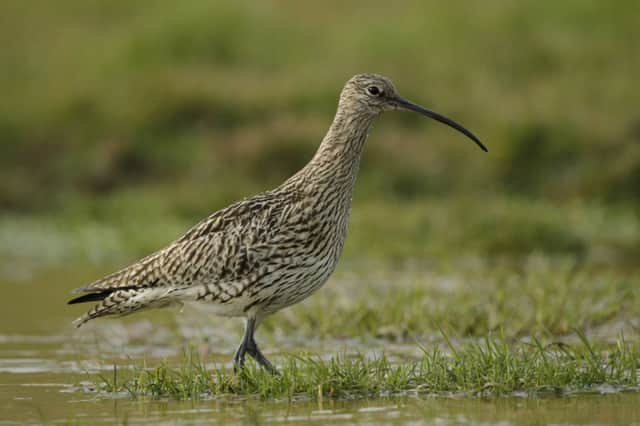Anne McCall: Be honest about the transformative change needed to save biodiversity


Friday saw the publication of the 2019 State of Nature in Scotland Report. It’s a three-yearly exercise, produced by a partnership of conservation NGOs, research institutes, national government and thousands of dedicated volunteers. It draws on the very best information on Scotland’s biodiversity – the species that comprise wild nature.
The report concludes that we are losing wildlife in terms of both species’ abundance and occupied range, across Scotland. There are winners and losers – some species are thriving while others struggle – but the average trend is downwards, as it has been since the first report was published in 2013.
Advertisement
Hide AdAdvertisement
Hide AdThese findings are of huge significance for everyone who cares about the environment, works in related sectors or makes decisions with environmental consequences. It is informative and troubling reading as a standalone document. However, there are three wider contexts in which the findings should be viewed.
The first is historic. Despite us having a virtually unparalleled tradition of active natural history study, the collection of systematic data, which allow scientific assessment of national ecological trends across time, only really began 20 to 50 years ago. The results must therefore be viewed against a backdrop of profound historic human influences on nature in Scotland before that period. This report is not a call to revisit some imagined lost idyll from long ago – but the trends we see now must be interpreted as recent events that come on the back of bigger human-induced changes across decades and centuries.
The second context is geographic. In terms of nature, no country stands alone: we are all part of interconnected global ecological communities. Earlier this year, the UN’s Intergovernmental Science-Policy Platform on Biodiversity and Ecosystem Services – IPBES – reported its global assessment. The message was clear – nature is declining at rates unprecedented in human history. Species extinctions are accelerating, with severe impacts on people around the world now likely. The current global response is insufficient: we are in time to save nature but “Transformative Change” is needed immediately, to simultaneously restore and protect biodiversity, and to respond to a heating planet.
The third context is human. Global ecological communities include people. Concern for ecology and conservation is no longer a fringe interest that governments can satisfy with some positive rhetoric and piecemeal funding and legislation. Nature conservation budgets can no longer be trimmed year on year because they are given low relative priority by governments. People across the planet are mobilising in unprecedented numbers to demand a better future for the ecosystems that are home for us, and for the other species around us – and Scotland is a core part of that movement. The State of Nature report confirms that the challenge we face is not restricted to the Arctic ice and Amazon forests, but that there is also an urgent job to be done here, on our own doorstep.
With our celebrated uplands, islands, marine habitats and native woodlands, with some extraordinary conservation initiatives for them already under way and with our ground-breaking progressive climate policies, Scotland is uniquely placed to become a world leader on nature-based approaches to climate change.
In 2020, two key international meetings will take place in Scotland – the Convention on Biological Diversity gathers in Edinburgh in April to examine how regions like Scotland can meet the challenges we face; and later Glasgow hosts the UN Climate summit. We must take this chance to define what Transformative Change means specifically for Scotland, making an honest assessment of the scale and nature of the challenges we face. Then, using this to construct informed and specific targets, our policy-makers and administrations must prioritise and resource the innovative actions needed to deliver.
We in Scotland have so much to lose. We know that loss of nature is happening here, on our watch. We owe it to ourselves and to future generations to step up and deliver Transformative Change – and we need to start that process now.
Anne McCall is Director of RSPB Scotland